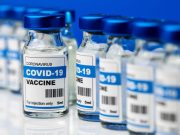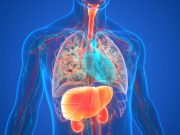Global Study Reveals Widespread Micronutrient Deficiencies
More than 5 billion people do not consume enough iodine, vitamin E, and calcium; more than 4 billion do not consume enough iron
Menopausal Transition Linked to Adverse Changes in Lipoprotein Profile
Women experienced greater change in low-density lipoprotein particles from DHS-I to II, with greatest change for premenopausal, perimenopausal women
High, Long-Term Consumption of Caffeine May Pose Cardiovascular Risk
Impaired recovery of heart rate and blood pressure following physical exertion seen in healthy adults
Factory Noise Tied to Higher Blood Pressure in Workers
Higher odds seen for long-term exposure to high decibels
TV Viewing Habits in Young Adulthood Tied to Cardiovascular Disease
Additionally, annual increases in television viewing across midlife also tied to new coronary heart disease
Naloxone Aids Out-of-Hospital Cardiac Arrest Outcomes, Regardless of Drug Use
Benefits include increased rates of return of spontaneous circulation
Fewer Complications at 18 Months Seen With Post-COVID-19 Vaccination Myocarditis
In contrast, post-COVID-19 myocarditis shows outcomes similar to conventional myocarditis
People With Chronic Liver Disease Face More Barriers to Health Care
Findings tied to higher prevalence of socioeconomic vulnerabilities compared with those with chronic obstructive pulmonary disease or cardiovascular disease
Automated Pipeline Can ID Clinically Significant Mitral Regurgitation
MR moderate or greater in severity and severe MR detected with high areas under the curve
Semaglutide Reduces Risk for MACE in Patients With Obesity and Heart Failure
MACE, heart failure composite end point, cardiovascular death, and all-cause death all improved with semaglutide for patients with versus without heart failure



















